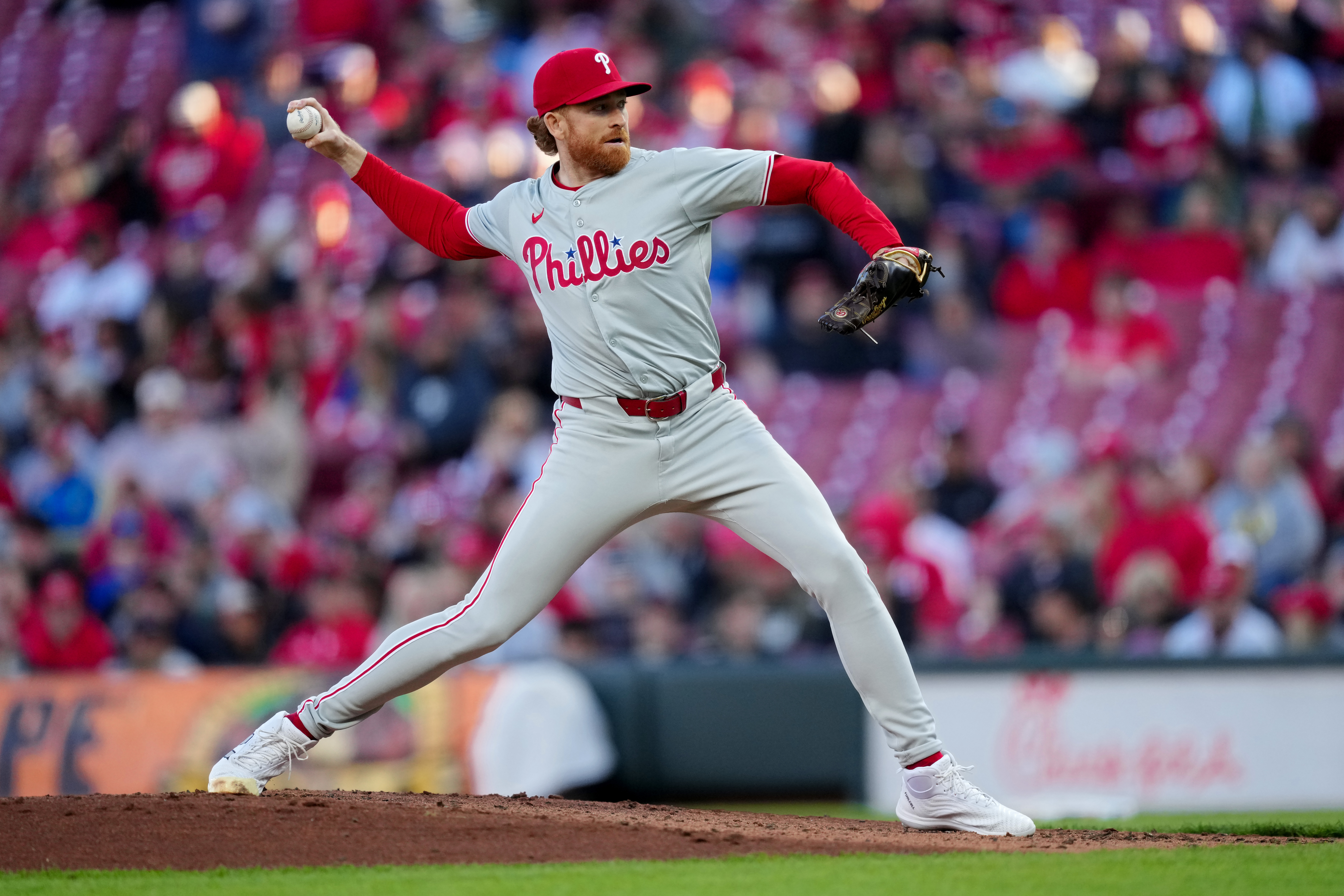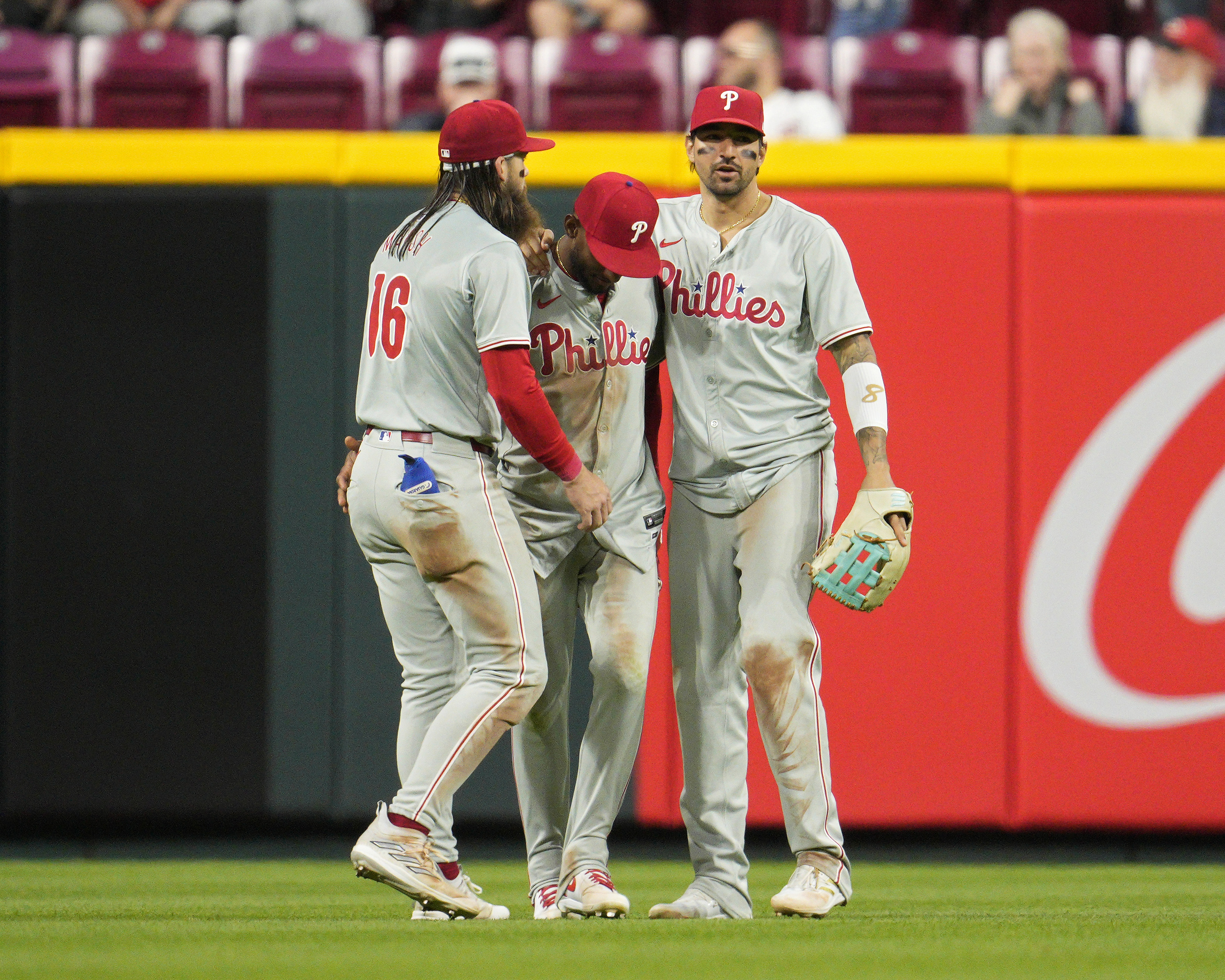It's difficult to feel sorry for a professional athlete who will have earned nearly $200 million in salary before his playing career ends at 37 years old. It's hard, but Ryan Howard is doing an outstanding job of making me feel bad anyway.
The statistics speak for themselves. As the calendar rolls over to June, Howard is batting .157 with more than twice as many strikeouts (52) as base hits (22). Debate rages as to whether the Phillies should hang on to the three-time All-Star for locker-room morale -- perhaps also in the desperate hopes they can still trade him -- or if they should just put The Big Piece out of his misery with an outright release.
There's no satisfying answer here. All I can say is I wish for it to be over.
Howard's decline has been one of the saddest to watch in recent Philly sports memory. From 2005 through 2011, he was the heart of the Phillies' order, belting 284 home runs and driving in 859 runs in six-and-a-half seasons, during the most successful run in franchise history. In 2016, Howard's bat can barely catch up to the ball, let alone knock it out of the infield.
Largely through no fault of his own. Howard has never been the same since rupturing his Achilles on the final at bat of the 2011 season. Sure, there were signs he was slowing down or that the rest of the league was catching up to him even then, averaging 32 homers between the '10-'11 seasons compared to 49.5 over '06-'09 -- but he was still hitting the ball at that point.
Since the injury, Howard's power hasn't necessarily dipped dramatically. It's his ability to hit the ball, period. From '04 to '11, he was a .275 hitter. After the injury, he's batting .226. This season has been especially trying, with the month of May bordering on the historic.
Lowest BA in May (60+ AB), since 1913:
.082 E. Lake (1949)
.083 R. Clayton (2003)
.097 Ryan Howard (2016)
.097 A. Phillips (1968)— Bob Vetrone Jr. (@BoopStats) May 30, 2016
Philadelphia Phillies
Complete coverage of the Fightin' Phils and their MLB rivals from NBC Sports Philadelphia.
Of course, it's not news Howard's career was derailed by injuries. It's no secret he's been particularly awful this season. It's just harder than ever to watch.
Just how ineffective has Howard been in 2016? In retrospect, maybe the numbers don't quite do the struggle justice. Obviously, he isn't hitting, and he's striking out as frequently as ever. What's new this year is the percentage of fly balls that don't even make it out of the infield -- 12 percent, which is twice as high as any season in 13 Major League seasons.
What does it mean exactly? Howard's swing is so jacked right now that even when he does make contact, even when he doesn't hit a ball into the defensive shift, one in 10 times is essentially a harmless pop-up.
To his credit, Howard also has eight home runs this season, some of which have been big at bats or game-winners. He's also been hailed as a positive influence and leader in the clubhouse, an example this young group of Phillies can certainly benefit from.
Nor do I believe Howard really needs anybody to feel bad for him. He's worked hard and accomplished more than most ever will at his profession, and as a result is able to provide for his family and generations beyond. He's built a great legacy both on the baseball diamond, but one that no doubt extends beyond athletic prowess.
Yet none of that changes the fact that Howard's play has deteriorated to the point where he's become a black hole in the Phillies' lineup. It pains me to say that, to use this platform to write it -- just not as much as it pains me to watch it happening.
I'd love nothing more than for Howard to go on a tear and end his final season with the Phillies with head held high. It's the ending a legend like him deserves. Or better yet, improve his production to a level where a contender in the American League would sign Howard and give him one last crack at postseason baseball.
But short of that, I'd love nothing more for it to all be over, to not have to watch one of the great Phillies sluggers flail away every other or third day, or less as it soon may come to. It's not a matter of debate as to when or how that should happen. The sooner, the better.



